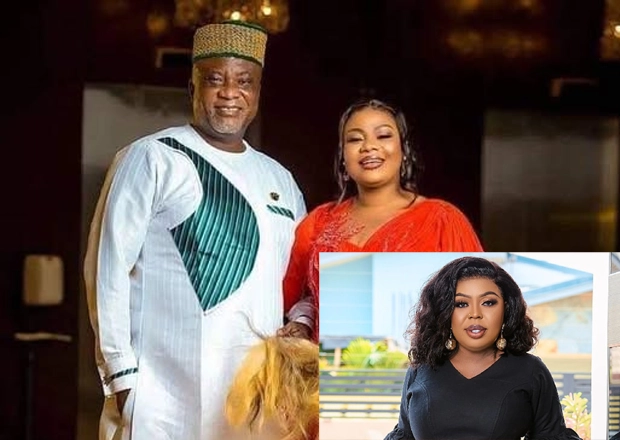The ongoing social media feud involving Ghanaian gospel musician Empress Gifty, actress Nana Ama McBrown, and controversial social media personality Afia Schwarzenegger highlights the complexities of online interactions, celebrity culture, and the spillover effects of political affiliations in the digital age. Empress Gifty found herself embroiled in controversy after a television appearance where her comments were interpreted by some as mocking Nana Ama McBrown’s broken arm. This interpretation ignited a wave of backlash against Empress Gifty, with accusations of harboring ill will towards McBrown. While Empress Gifty vehemently denied these accusations, asserting her respect for McBrown and dismissing the controversy as trivial, the online community remained largely unconvinced.
The situation escalated further as Empress Gifty responded to the criticism by invoking curses upon those she believed were fueling the negativity, primarily McBrown’s fans. This action, instead of quelling the backlash, intensified it, adding fuel to the already raging fire of social media commentary. The controversy attracted the attention of Afia Schwarzenegger, a social media personality known for her outspoken and often controversial opinions. Schwarzenegger offered her perspective on the situation, attributing the negative attention directed at Empress Gifty to the actions and reputation of her husband, Hopeson Adorye, a political figure known for his divisive rhetoric.
Schwarzenegger posits that Adorye’s frequent disparaging remarks about women, particularly those on the opposing political side, have created a negative perception that has now extended to his wife, Empress Gifty. This, according to Schwarzenegger, explains the public’s unwillingness to defend Empress Gifty in the face of online criticism. She suggests that the public’s perception of Empress Gifty is inextricably linked to her husband’s controversial political persona. Schwarzenegger’s intervention, however, didn’t simply offer an explanation; it also carried a pointed message to Empress Gifty. She advised the gospel musician to cease her complaints about the curses and address the root of the problem—her husband’s behavior. Schwarzenegger argued that Empress Gifty’s focus on insinuations and online feuds, rather than her gospel ministry, was contributing to the negative perception surrounding her.
This incident underscores the interconnected nature of public perception in the digital age, where the actions and words of one individual can significantly impact the reputation of those associated with them. Empress Gifty’s case highlights the phenomenon of “guilt by association,” where the negativity surrounding her husband has seemingly tainted her public image, making her a target of online criticism. Furthermore, Schwarzenegger’s commentary highlights the complexities of navigating the online landscape as a public figure, particularly when entangled in relationships with controversial individuals.
The controversy also sheds light on the power and pervasiveness of social media in shaping public discourse and influencing perceptions. Online platforms have become battlegrounds for public opinion, where individuals can quickly mobilize support or opposition, often with little regard for nuance or verified information. The rapid spread of information and misinformation, fueled by algorithms and echo chambers, can create and amplify controversies, making it challenging for public figures to manage their image and control the narrative. Empress Gifty’s predicament illustrates how social media can quickly turn a single incident into a widespread controversy, with the potential to cause significant reputational damage.
Finally, the incident involving Empress Gifty, Nana Ama McBrown, and Afia Schwarzenegger reveals the intersection of entertainment, politics, and online culture in contemporary Ghanaian society. The incident isn’t merely a celebrity feud; it’s a reflection of broader societal dynamics, where political affiliations, online behavior, and personal relationships intertwine to shape public perception and influence the trajectory of online controversies. The involvement of Hopeson Adorye, a political figure, adds another layer to the controversy, demonstrating how political divisions and online discourse can spill over into the personal lives of public figures and their families, further complicating an already sensitive situation. This case serves as a cautionary tale for public figures navigating the complex landscape of online interaction and the potential repercussions of their associations and public pronouncements.














